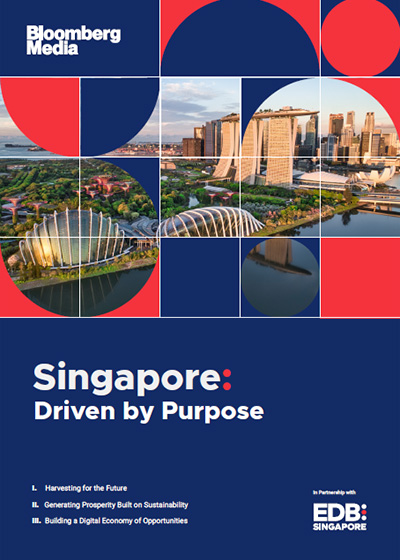In the current world of heightened insecurity and rising costs across the world, these underlying factors are even more important. However, it is also in such environments that it becomes more difficult to see the long-term benefits of these strengths.
One of the key aspirations of Forward SG is to move from the narrow focus on academic performance and paper qualifications “to embracing wider competencies, life skills, and other personal attributes”.
Although this mainly applies to the education system in Singapore, the underlying principle and spirit also apply to how we shape our business environment.
In the refreshed social compact, Singaporeans support and recognise contributions that come in different forms. As an investment hub, Singapore’s value proposition to the world is also multifaceted, with some being more tangible than others.
Long-term partnership with foreign multinationals
Lastly, Singaporeans and foreign multinationals must see each other as long-term partners in order to sustain and reap the benefits of a stable social compact.
For individual Singaporeans or our small and medium-sized enterprises, it goes back to the point of not seeing BEPS as an opportunity to extract more money from MNEs.
For policymakers and MNEs operating here, it means avoiding reactionary responses that forfeit longer-term growth. For example, in a recently published policy brief, a working group convened by the Institute of Policy Studies outlined the negative implications that might arise when MNEs place too much emphasis on carve-out provisions.
Such provisions include the Substance-based Income Exclusion (SBIE), a provision designed by the Organisation for Economic Co-operation and Development (OECD) and G20. The SBIE allows firms to exclude a percentage of expenses on tangible assets and payroll to be excluded from the Global Anti-Base Erosion Model Rules tax base.
A short-term view taken by MNEs is to see this carve-out as an opportunity to pay less tax and invest more on tangible assets, even though they might not be suitable or necessary for the firm’s needs.
Tangible assets and employee compensation are not necessarily top value drivers in a modern knowledge-based economy like Singapore. In fact, for Asia as a whole, industrialisation has been predicated upon improving skills and technology to move up the value chain.
Policymakers should be able to understand that Singapore is naturally limited to possessing relatively fewer tangible assets and workers due to its small land size. It is therefore unproductive to expect much from a policy that runs contrary to the overall direction of the country’s economy.
Instead, the expectations that firms and policymakers should have of each other is the focus on pro-growth goals that might even mean investing in intangibles such as social capital.
Thus, the new Refundable Investment Credit can be an effective tool to make clear to businesses those activities that are of value to the local economy and incentivise growth in those areas, such as investing in research and development, innovation, and solutions with decarbonisation objectives.
Unlike tax incentives, the returns of these investments in the ecosystem are not immediately visible.
However, Singapore’s short history is enough to remind us of how intangible factors such as good governance and sociopolitical stability have allowed us to become the investment hub that we are today. Grounding our multinationals on these factors also brings about those multiplier effects where innovative and value-adding companies contribute jobs, ideas and activities to Singapore’s economy.
All of these sustain Singapore’s social compact by providing the diverse pathways of success and resources to overcome major challenges, such as climate change and food security.
Efforts to continue building up these underlying strengths of our nation must persist, and our businesses should have the patience to stay and contribute to the fruition of these investments. After all, members of a social compact – whether citizens or not – are in it for the long run.
Christopher Gee is deputy director and senior research fellow at the Institute of Policy Studies, National University of Singapore. Yap Jia Hui is research assistant at the same institute.
This article was first published in The Business Times on 28 February 2024, and is reproduced with the writers’ permission.








